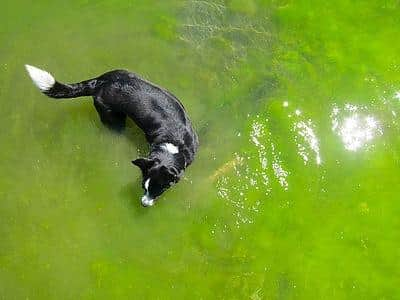Residents across Fife are being asked to keep an eye out for blue-green algae
and live on Freeview channel 276
Blue-green algae, also known as cyanobacteria, are tiny organisms which develop naturally in lochs, ponds, reservoirs, rivers and the sea. In still and slow-moving waters the algae can multiply during the summer to such an extent that they discolour the water making it appear green, blue-green or greenish brown. Shoreline mats of blue-green algae may appear and are usually coloured brown to black. Sometimes a scum may form on the surface of the water.
Some blue-green algae release poisons into the water. It is not possible to tell by looking which algae do or do not produce poisons. People and animals can become unwell from contact with water affected by blue-green algae blooms.
Advertisement
Hide AdAdvertisement
Hide AdNHS Fife is advising the public, especially people undertaking water sports, anglers and dog owners, to be particularly vigilant and avoid contact with algal blooms.


People such as paddle boarders, wind surfers and swimmers who come into contact with blue-green algae scum or who accidentally swallow affected water can suffer from skin rashes, eye irritation, vomiting, diarrhoea, or pains in muscles and joints. These symptoms are usually mild, but in some cases can be more severe.
Fish caught in waters affected by blue-green algae blooms should not be eaten and should not be fed to pets.
The risk to small animals like dogs is significant over the summer months as they tend to drink more water in the heat and may eat shoreline crusts of algae. Dog owners should prevent their pets from coming into contact with affected water.
Advertisement
Hide AdAdvertisement
Hide AdWhere monitoring reveals higher than acceptable levels of algal bloom, warning notices will be posted at the affected waterways.
Anyone who finds water which they suspect is affected and is not displaying a warning sign, should contact their local environmental health service.
For further information or to report blue-green algae, email: [email protected].
More info is available on the Council website at: www.fife.gov.uk/bluegreenalgae.